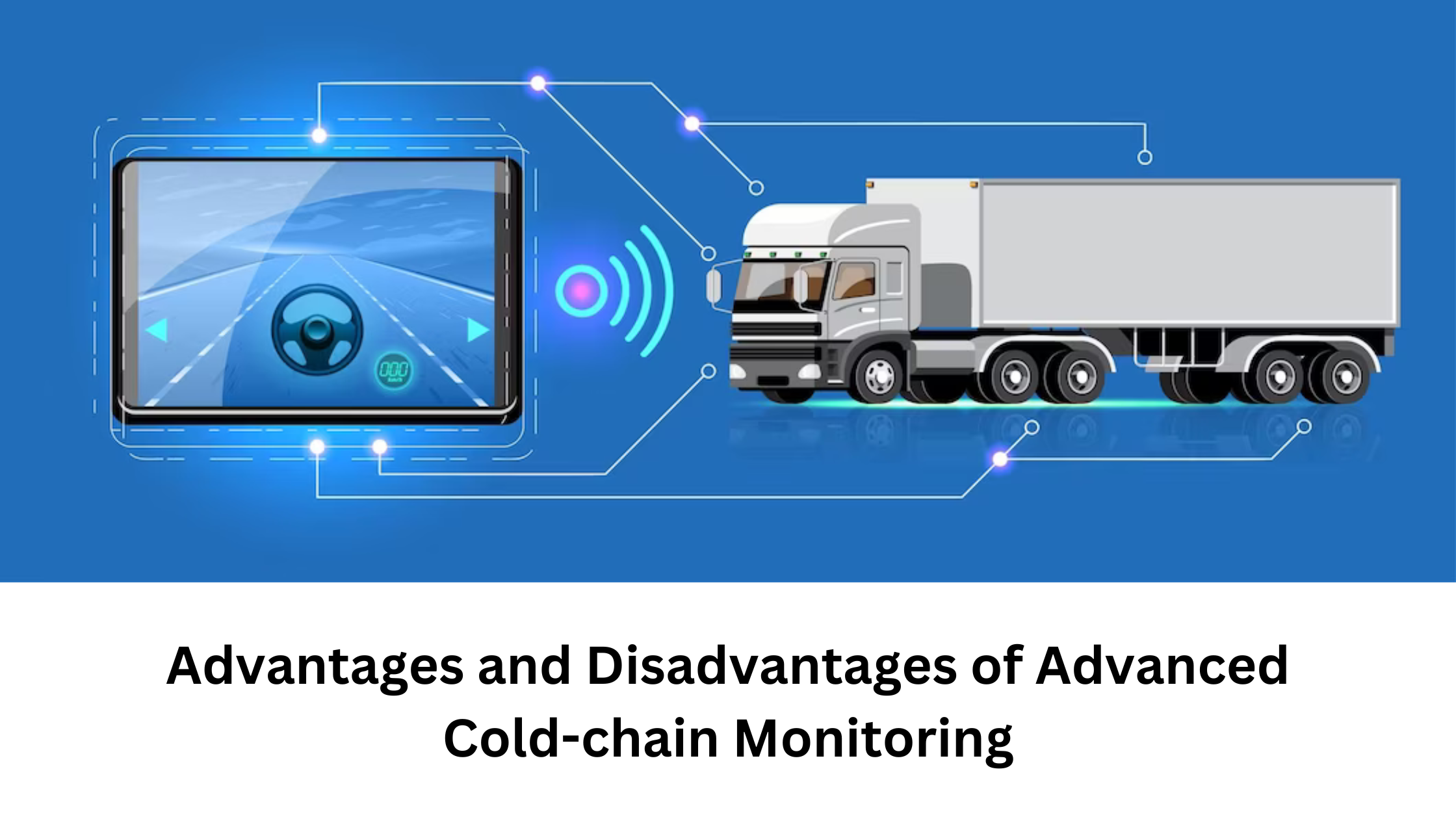

Every degree is extremely important, —especially in logistics. When a precise temperature balance determines a product’s integrity, accuracy becomes essential. Advanced cold chain monitoring systems monitor everything.
Well, are you a business that deals with such perishable products that require precise temperature control for storage? If yes, we are here to help you in managing your products. Advanced cold chain monitoring solutions are designed to ensure that your products reach their destination in optimal conditions.
So without any further ado let’s dive into this piece of writing that covers cold chain monitoring plus the advantages and disadvantages the solutions provide.
Cold Chain Monitoring is a sophisticated technology that involves constant monitoring and control of the temperature and environmental factors surrounding products, particularly those that necessitate storage at an ideal temperature. These products are highly susceptible to temperature fluctuations at every stage of the supply chain.
The primary objective of cold chain monitoring solutions is to uphold a steady and regulated temperature range, guaranteeing the integrity and effectiveness of the products.
Various industries rely on cold chains, including the food and beverage, healthcare and pharmaceutical, chemical, and floral industries.
| ADVANTAGES | DISADVANTAGES |
| Temperature Control | Cost |
| Quality Assurance | 2) Complexity |
| Real-Time Monitoring | 3) Dependency on Technology |
| Cost Savings | 4) Maintenance and Calibration |
| Data logging | |
| Client Satisfaction |
Cold chain monitoring systems ensure consistent and safe storage plus the transportation of temperature-sensitive products such as pharmaceuticals and perishable goods. The system employs sensors to regulate and monitor temperature throughout the storage and transportation.
This further ensures that pharmaceuticals and perishable goods are not exposed to temperature variations that could compromise their integrity. Furthermore, route planning software ensures that the goods reach their destination on time without being spoilt.
Quality assurance is paramount, especially for industries like pharmaceuticals and food, where product efficacy and safety are non-negotiable. The continuous monitoring and control of temperature parameters prevent deviations that might impact the quality of the stored or transported goods.
This further guarantees that products maintain their intended quality from production to delivery and reduces the risks of recalls or loss of reputation.
Cold chain monitoring systems provide real-time monitoring systems as they immediately respond to deviations in temperature which is quite crucial to prevent damage to sensitive products. The system utilizes real-time data from sensors to monitor temperature conditions during storage and transportation.
This further enables timely intervention, reducing the likelihood of product spoilage or compromise in quality.
Temperature monitoring systems help with product spoilage which leads to financial stability. By preventing temperature-related damage cold chain monitoring systems contribute to minimizing financial losses.
This further enhances the bottom line by reducing waste, maintaining the value of the product, and minimizing the need for replacements. Not to forget that by having fuel management system, it becomes possible for companies to reduce fuel consumption and the costs related to it.
Temperature monitoring systems help keep a detailed record of the temperature data which can be important for audits, compliance, and continuous improvement. The cold chain systems constantly log temperature information at regular intervals, creating a historical database in the pharmaceutical reporting software
This further facilitates analysis of the process optimization, and trend identification and provides evidence for regulatory compliance.
The satisfaction of clients is a crucial element, especially in logistics. Delivering products in optimal conditions is crucial for customer satisfaction and loyalty.
Cold chain monitoring ensures that the products arrive in the best possible state, meeting customer expectations.
His results in building trust, enhancing brand reputation, and encouraging repeat business through consistently high-quality deliveries.
As every coin has two sides – the same is the situation with temperature monitoring systems. With its pros there also come some consequences of the system. Some of the most common drawbacks of the system are mentioned below
Implementing an advanced cold chain monitoring system involves significant initial costs. Including the purchases of sophisticated hardware, software, and sensors. As well as the integration of these systems into existing infrastructure.
The complexity of advanced cold-chain monitoring systems may pose challenges in terms of system integration, data interpretation, and staff training. The sophisticated technology involved may require specialized knowledge for effective implementation and ongoing management.
Advanced cold-chain monitoring systems heavily rely on technology, making them susceptible to technical glitches, software malfunctions, or hardware failures. System downtimes or failures could jeopardize the integrity of the cold chain.
Regular maintenance and calibration are essential to ensure that advanced cold-chain monitoring systems provide accurate and reliable data. Failure to conduct proper maintenance may result in inaccurate readings, diminishing the system’s effectiveness over time.
To wrap it all up, advanced cold chain monitoring systems are crucial if you deal in the delivery of perishable products. The solution helps in maintaining the optimum temperature level and also sends alerts in situations when the level of the temperature falls or drops.
This piece of writing has covered the major advantages and disadvantages of cold chain monitoring systems.
Planning to incorporate a cold chain monitoring system, Well you can completely rely on TrackoBit. From tracking to analyzing to acting in critical situations, it does all for you.
Intrigued?
Get in touch today!!!
Read More:- What is Cold Chain Monitoring and Why is it Essential?







WhatsApp us